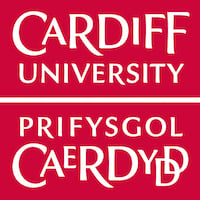Theoretical and Computational Chemistry
Position Details (PhD Program)
The School of Chemistry fromCardiff University, has developed a particular strength in Theoretical and Computational Chemistry, with a research group dedicated to this exciting area of study. As part of the Theoretical and Computational Chemistry programme, students can conduct their research within this group.
The Theoretical and Computational Chemistry research group from Cardiff University , consists of four members of academic staff specialising in theory and computation, together with further colleagues applying modelling methods.
Key Facts
Application areas include adsorption and reactivity of oxide and metallic surfaces, and in microporous materials, mechanistic studies of organic reactions, structure and function of bio-molecules, proton exchange and transport in solutions, the simulation of drug-receptor binding problems, simulation of phase transformations and reactions in solid, mass and charge transport, and structure and property prediction.
Students in this field can expect to gain a deep understanding of the fundamental physical processes that lie at the heart of all chemical phenomena. In addition, skills such as computer programming, use of high-performance computing resources, mathematics and numerical analysis feature strongly.
Career prospects
Graduates from theoretical and computational chemistry have gone on to employment in a wide range of academic and industrial locations. Many continue in researchviapost-doctoral research fellowships, while others develop and test chemical software. Transferable skills in maths and computing also make graduates from this field competitive in non-chemical employment sectors.
Specific areas of current interest include:
- the computational design of new molecules and materials for use in catalysis and sustainable energy
- medicines
- diagnostics
- simulation of the dynamic behaviour of reactions
- surfaces
- solids and biomolecules
- detailed analysis of chemical bonding in organic and inorganic molecules



 Cardiff University
Cardiff University